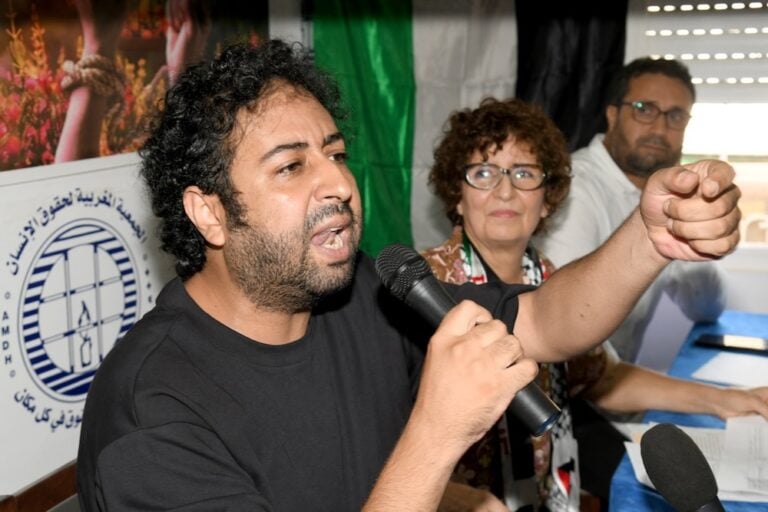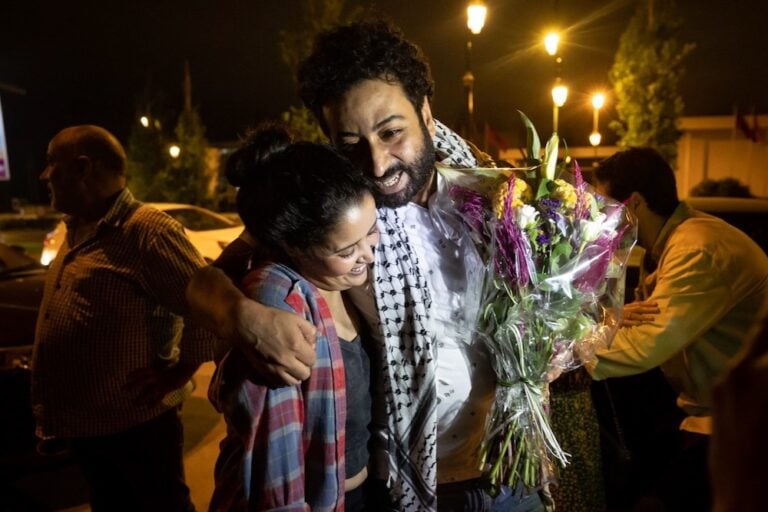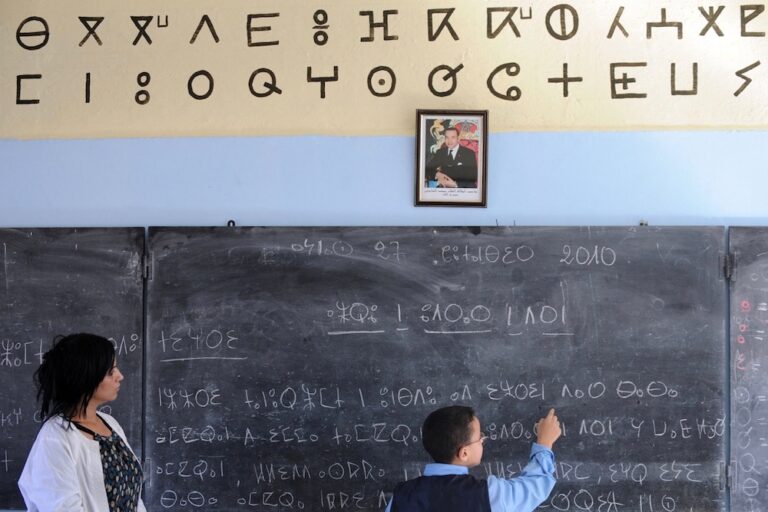(RSF/IFEX) – In a letter to Prime Minister Abderrahmane Youssoufi, RSF condemned the deterioration of press freedom in the kingdom. Robert Ménard, RSF’s secretary-general, called on the prime minister “to put an end to these violations of press freedom which have been multiplying since the beginning of the year. The most recent incident, placing a […]
(RSF/IFEX) – In a letter to Prime Minister Abderrahmane Youssoufi, RSF condemned the deterioration of press freedom in the kingdom. Robert Ménard, RSF’s secretary-general, called on the prime minister “to put an end to these violations of press freedom which have been multiplying since the beginning of the year. The most recent incident, placing a team of France 3 journalists under house arrest, reveals authoritarian reactions that we thought had disappeared.” RSF recalled that since 1 January 2000, Moroccan authorities have imposed a circulation ban on seven newspapers, including two French publications: “Jeune Afrique-L’Intelligent” and “Le Figaro”. “The fact that a Moroccan journalist has been publicly threatened by a minister is also very worrying,” added Ménard.
According to information obtained by RSF, three journalists from the French television channel France 3 including cameraman Joseph Thual, editor Jean-Marc Pitt, and video editor Michel Bernasconi, were placed under house arrest on 8 October, in Errachidia (eastern part of the country). On 7 October, they had covered a pilgrimage by the organisation Truth and Justice Forum to Tazmamart prison, sixty kilometers from Errachidia. The king’s prosecutor claimed to have a warrant for the arrest of Thual, and asked him to hand over him his filmed footage. In June, Thual was put under close surveillance while reporting on the Ben Barka case (see IFEX alert of 16 June 2000). Some of his videotapes were confiscated by customs officers at Rabat airport. On his departure, Hamidou Laânigri, the general director of Counter Espionage Services (CES), declared to a Moroccan journalist that Thual “should not come back to Morocco.”
On 4 October, another journalist also fell victim to the same kind of intimidation. During a briefing about Morocco’s position on Western Sahara, Minister of the Interior Ahmed Midaoui threatened Aboubakr Jamaï, director of the weekly “Le Journal” (see IFEX alert of 5 October 2000). Referring to an interview with the leader of the Polisario Front fighting for the independence of Western Sahara, which was published in an issue of “Le Journal” which was banned on 15 April, the minister said to the journalist: “If you publish such an interview with a member of the Polisario Front again, I will ban it again. (â¦) Fortunately you’re not my son or I would have smashed your face in!”
On 5 February, two French-language weeklies, “Le Reporter” et “Le Quotidien du Maroc/Economie” and one Arabic-language newspaper “Al Moustaquil” were banned for releasing a memorandum from Cheikh Abdeslam Yassine, the chief of the most powerful Islamic branch in the country. On 15 February, one issue of the French weekly “Jeune Afrique-L’Intelligent” was banned because it contained a text by a Moroccan living in Quebec, Abdellah Labdaoui, who questioned the new king Mohammed VI’s ability to carry out meaningful reforms and punish those who had perpetrated human rights violations during his father’s reign (see IFEX alert of 21 March 2000). On 4 March, an issue of the French daily “Le Figaro” did not appear on news-stands in Morocco, because it contained a report entitled “The Secrets of a Friend of the King”, about a book written by the late Hassan II’s personal doctor, François Cléret, and entitled “Le Cheval du roi” (The King’s Horse) (See IFEX alert of 21 March 2000). The report said that according to the doctor, “the body [of Mehdi Ben Barka] was cut into pieces under the orders of Hassan II and taken to Morocco in diplomatic bags”. On 15 April, the weeklies “Le Journal” and “Assahifa”, both printed in France, were prevented from entering Morocco (see IFEX alerts of 20, 19 and 18 April 2000). In the previous issue, “Le Journal” had published an interview with Mohammed Abdelaziz, leader of the Polisario Front fighting for the independence of Western Sahara. As “Assahifa”, the Arabic-language version of “Le Journal”, did not use the interview, it would appear that it was sanctioned simply for belonging to the Media-Trust group, which publishes both newspapers.


